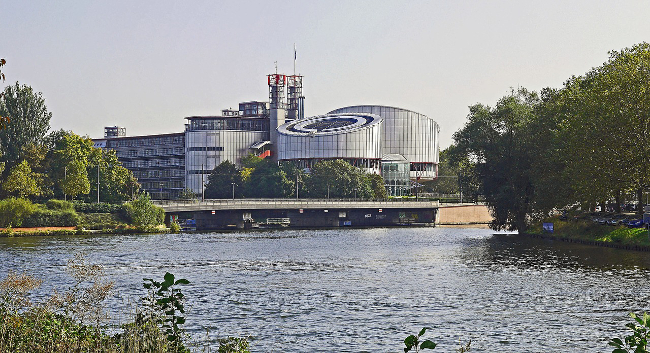ECtHR: Man refused access to solicitor during questioning suffered no violation of his right to a fair trial

An Irish man whose access to a solicitor was restricted during questioning by police on suspicion of murder did not suffer a violation of his right to a fair trial, the European Court of Human Rights (ECtHR) has ruled.
The applicant, Barry Doyle, was arrested in February 2009 in connection with the November 2008 killing of rugby player Shane Geoghegan.
He was taken to a police station, informed of his rights and given immediate access to a particular solicitor, with whom he consulted prior to the first police interview.
He was subsequently interviewed many times and had access to a solicitor, both in person and by telephone, between interviews and for as long as he or the solicitor requested. At the applicant’s request, one interview was stopped to enable him to consult further with the solicitor.
However, all of the interviews were conducted without the solicitor being physically present in the interview room.
Mr Doyle admitted killing Mr Geoghegan in the 15th interview and gave a number of details about the crime. The police questioned him several more times after that.
After a jury failed to reach a verdict in 2011, he was again tried in 2012. He sought to have his admissions excluded, arguing that he had been induced, threatened, and denied access to legal advice. The trial judge dismissed his objections and he was found guilty of murder and given a life sentence.
Appeals to the Court of Appeal and the Supreme Court were unsuccessful. The Supreme Court, which rejected his appeal by six votes to one in January 2017, discussed in detail the right of access to a solicitor during questioning by the police.
In July 2017, Mr Doyle complained to the ECtHR that he was not able to have a solicitor present during his interrogation, representing a failure by the State to provide him a fair trial under Article 6 §§ 1 and 3 (c) (right to a fair trial and right to legal assistance of own choosing).
In today’s Chamber judgment, the ECtHR reiterated that the right of every accused to be effectively defended by a lawyer constituted one of the fundamental aspects of the right to a fair trial (Beuze v Belgium).
According to its case law, the applicable test under Article 6 §§ 1 and 3 (c) consisted of two stages – first looking at whether or not there were compelling reasons to justify a restriction on the right of access to a lawyer and then examining the overall fairness of proceedings.
As regards the first stage, the court observed that Mr Doyle had been entitled to and had been granted access to a lawyer after his arrest and prior to being interviewed by the police. After that first interview he had been able to request access to his lawyer at any time.
However, in accordance with police practice at the time, his lawyer had not been permitted to be physically present during the interviews themselves. Therefore, the restriction on his right of access to a lawyer had been of a general nature and had not been justified by compelling reasons.
When looking at the second stage of the applicable test and assessing the overall fairness of the proceedings, the court considered firstly that Mr Doyle, being an adult and a native speaker of the language in use, had not been particularly vulnerable.
It did not see any reason to call into question the assessment of the domestic authorities, which had examined very carefully whether there had been any threat or inducement by the police during the interviews.
Mr Doyle had been able to challenge the admissibility of evidence and to oppose to its use at every stage of the proceedings, including a 10-day voir dire. Moreover, sound public-interest considerations had justified prosecuting Mr Doyle, who had been charged with murder. The trial had followed the killing of an innocent victim as a result of mistaken identity in the context of a feud between criminal gangs, which had required the State to take appropriate measures.
There had been other procedural safeguards, such as the fact that all police interviews had been recorded on video and had been made available to the judges and the jury.
Lastly, the jury had received careful instructions from the trial judge in relation to their consideration of the evidence deemed admissible.
The court observed that while the Supreme Court had engaged extensively with the court’s case law on the right of access to a lawyer, the majority had wrongly concluded that that right did not extend to having a lawyer physically present during police interviews. It also noted that police practice in the respondent State had since changed.
Having assessed the impact of the restriction on access at the pre-trial stage on the overall fairness of the criminal proceedings, the ECtHR concluded that their overall fairness had not been irretrievably prejudiced. There had accordingly been no violation of Article 6 §§ 1 and 3 (c).
The case was considered by Judge Angelika Nußberger (Germany), presiding; Judge Ganna Yudkivska (Ukraine); Judge André Potocki (France); Judge Síofra O’Leary (Ireland); Judge Mārtiņš Mits (Latvia); Judge Gabriele Kucsko-Stadlmayer (Austria); and Judge Lado Chanturia (Georgia).
Dissenting, Judge Yudkivska said Mr Doyle’s confession was obtained “following clear pressure and intimidation by police officers in the absence of his lawyer” and his rights had been violated.





